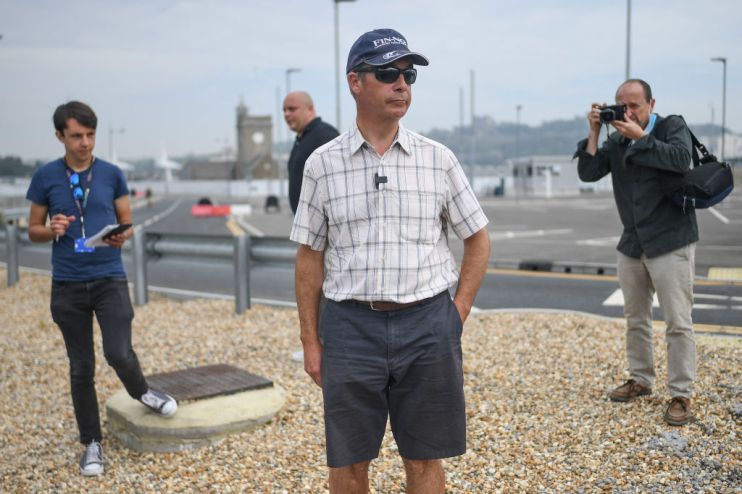Nigel Farage has lost his way as voice for the silent majority

There are some basic rules of public relations which are familiar to anyone with, well, the world. There are some groups which it is folly to challenge, no matter how well argued you think your case is. Nurses, children’s hospitals, veterinarians, cancer researchers: all are best given a wide berth if you’re feeling pugilistic, as the chances of pulling off a comms win are remote indeed. Those who rescue people drowning in the sea are certainly among them.
Last week, however, Nigel Farage, everyone’s favourite Europhobic bandwagon enthusiast, raised the stakes in the culture war by denouncing the Royal National Lifeboat Institution, the 200-year-old charity dedicated to saving lives at sea.
He had begun the week in usual form, sounding the alarm at the number of migrants arriving in the UK by sea and predicting that 30,000 would arrive this year. His view on the responsibility was characteristically straightforward. “It is out of control”, he tweeted. “No doubt the Home Secretary will make another tough speech. Priti useless.” A cynical observer might look twice at Farage criticising a fellow politician for talking tough but delivering little.
On Tuesday, he didn’t skip a beat, demanding in the Telegraph that former Australian prime minister Tony Abbott be enlisted to help tackle the “migrant emergency”. Then he changed tack. After RNLI’s chief executive, Mark Dowie, spelled out his organisation’s guiding principle in the Guardian – saving lives – Farage lashed out at the RNLI as a “migrant taxi service”.
Condemnation was swift. After all, many asked, even if one was in favour of stricter controls on migration, what was the logical conclusion of Farage’s remarks? That migrants should be left to drown in the Channel if they got into difficulties?
Boris Johnson, Dominic Raab and Sajid Javid all rowed in behind the RNLI, the last announcing he had made a donation in response to Farage’s criticism. And he was not alone: the public responded with achingly eloquent determination. Daily donations usually total £6,000-7,000. Last Wednesday, they reached £200,000.
But Farage was not done. From his new bully pulpit on GB News, he tacked cunningly towards underdog status, brushing off his “people’s champion” t-shirt. He had no desire to “pick a fight” with the RNLI, he assured his audience, all he was doing was “pointing out the truth. “But if you, the bosses in Poole, want to pick a fight with me, that’s fine by me, I’ve fought people bigger and uglier than you,” he declared.
Many were scathing of Farage’s latest row, but few more so than deputy Labour leader Angela Rayner: “I’d like to see Nigel Farage putting his life at risk to save others rather than being a rent-a-gob on TV, but I won’t hold my breath. It is not patriotic to want people fleeing war, persecution and violence to drown in the sea off the coast of Britain.”
Farage has long been known for being fearless in verbal combat and he relishes an argument. But he seems to have gained no appreciable traction with his criticism of the RNLI. When you are condemned by everyone from Nicola Sturgeon and Adrian Edmondson to Dominic Raab and Brian Moore, with Gary Lineker thrown in along the way, it doesn’t look like you’re creating a winning coalition or speaking to the silent majority: much less when the public votes with its wallet.
So why did he do it? Why did Farage, no fool, saddle up and choose this particular valley of death to ride into? At his core, Nigel Farage is a controversialist. Media attention, whether good or bad, is his oxygen. He dedicated his career to getting the UK out of the European Union, and now—somewhat, one suspects, to his surprise—he has succeeded, he must find new causes, however risky and implausible.
This one has gone wrong. He will have won over not a single doubter, and many of his Union Flag-adoring supporters will feel a little queasy at his spat with a venerable volunteer organisation which saves hundreds of lives a year.
Farage will survive, of course, but he must be careful. With a government led by Boris Johnson, the populist and nationalist ground where he has planted his standard so successfully in the past is growing more crowded. If Farage responds by moving ever-further right, saying more preposterous things to maintain his profile, he might find that he tumbles off the edge altogether. And there will be a lot of people there to cheer his fall.